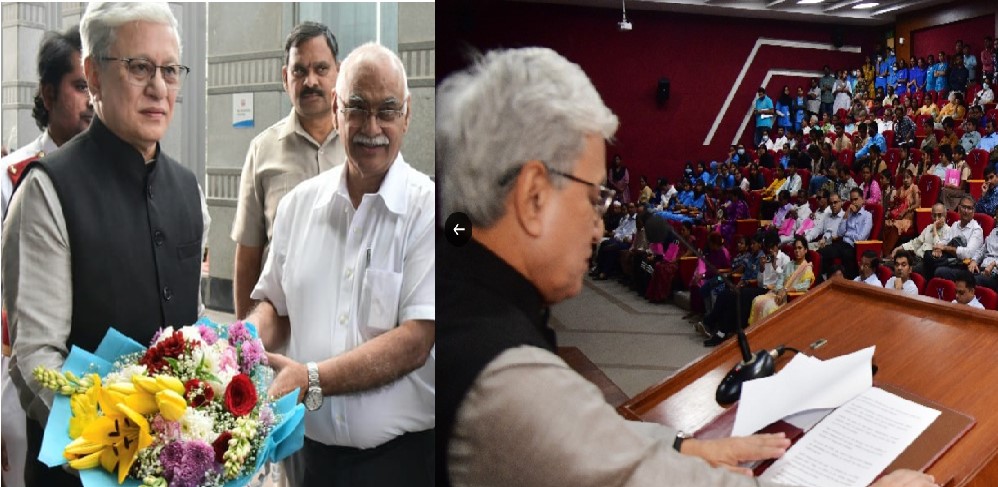
(Photo : x.com)
Telangana Governor launched AI-powered smart glasses for visually impaired.
- AI-powered smart glasses, developed by KFRC, have been launched to aid the visually impaired.
- The glasses can identify faces, objects, and provide navigation support, enhancing the quality of life for visually impaired individuals.
- Governor Varma highlighted the importance of these devices for India's 20 million visually impaired people.
- The launch of these glasses marks a significant step in assistive technology, showcasing the potential of AI in transforming various sectors.
In a significant leap forward for assistive technology, Telangana Governor Jishnu Dev Varma recently launched AI-powered smart glasses designed to aid the visually impaired. Developed by the KIMS Foundation and Research Centre (KFRC), these glasses are equipped to identify faces and objects, and provide navigation support, thereby enhancing the quality of life for visually impaired individuals in ways previously unimaginable.
The development of these glasses was led by former DRDO scientist Dr. V. Bhujanga Rao, under the KFRC. The foundation, established in 2010 by KIMS Hospital CMD Dr Bollineni Bhaskar Rao, collaborated with Achala Health Services, a technology company founded by Rajesh Raju. The smart glasses employ advanced computer vision and machine learning algorithms, making them an exceptional aid for the visually impaired.
The glasses can identify people standing in front of the user and detect objects, obstacles, and surroundings, helping visually impaired individuals navigate without difficulty. They can also read printed or handwritten text aloud, facilitating easier communication and information access.
The Impact and Potential of AI-Powered Glasses
Governor Varma noted that India is home to over 20 million visually impaired people, making these smart glasses a crucial resource for them. He highlighted that these devices not only support daily activities but also boost users' self-confidence. He expressed admiration for the scientists, technology experts, and supporting organizations involved, commending them for their dedication to improving the lives of the visually impaired.
Dr Bhaskar Rao emphasized that these glasses would allow the visually impaired to move more freely, recognize people around them, and communicate with greater ease. This technology, he said, fulfills the vision of providing equal opportunities and accessible information for everyone.
Dr. V. Bhujanga Rao announced that these smart glasses will be distributed to visually impaired individuals in need, with the assistance of prominent non-profit organizations, government agencies, and healthcare providers. Achala Solutions CEO Raju affirmed that they have the infrastructure necessary to produce as many smart glasses as required. The Devanar Foundation for the Blind has verified the quality and performance of these smart glasses.
The Evolution of Assistive Technology
This development is a significant milestone in the field of assistive technology, which has been evolving over the years. From the advent of digital hearing aids in the 1980s to today's AI-enhanced fitness wearables, these devices have evolved to play a crucial role in our daily lives. The introduction of the Apple Watch in 2004 marked a period of rapid innovation in activity trackers and the broader wearable sector, leading to transformative changes in how these technologies are developed and used.
In recent years, there has been a noticeable shift in the wearable devices market. While initially popular for features like activity tracking and smart notifications, consumer interest began to wander as these functions became common. This led to a growing conversation about the need to enhance wearables with more advanced and intelligent capabilities, sparking a new wave of innovation in the industry.
The launch of the AI-powered smart glasses is a testament to this ongoing innovation. It also underscores the potential of AI in transforming various sectors, including healthcare and education. As we move towards a more tech-driven future, such advancements are expected to play a pivotal role in shaping our society and how we experience our humanity.
* This is a contributed article and this content does not necessarily represent the views of btin.co.in









